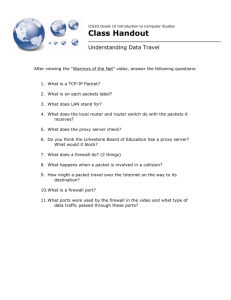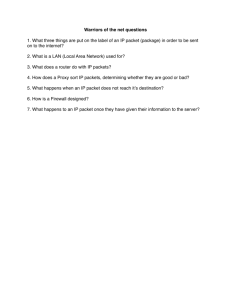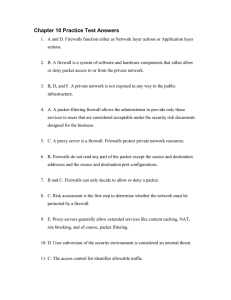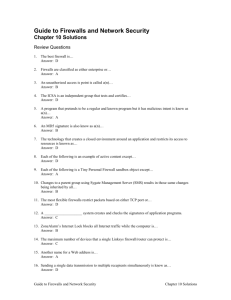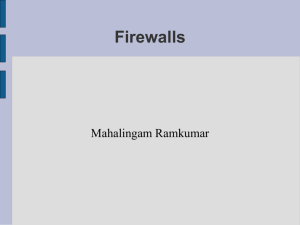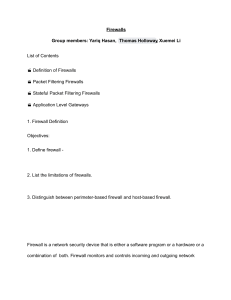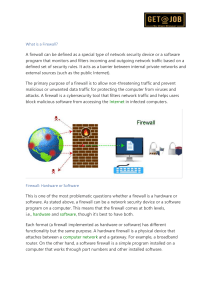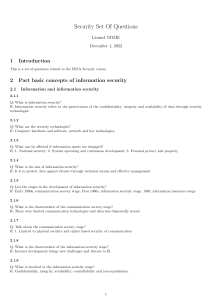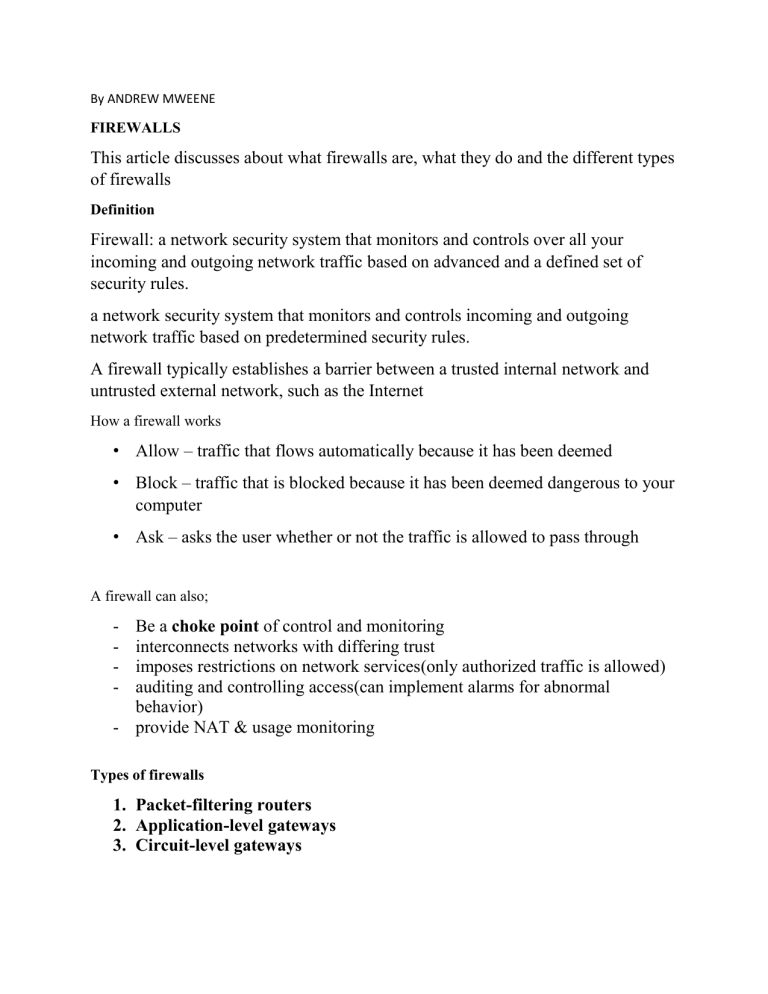
By ANDREW MWEENE FIREWALLS This article discusses about what firewalls are, what they do and the different types of firewalls Definition Firewall: a network security system that monitors and controls over all your incoming and outgoing network traffic based on advanced and a defined set of security rules. a network security system that monitors and controls incoming and outgoing network traffic based on predetermined security rules. A firewall typically establishes a barrier between a trusted internal network and untrusted external network, such as the Internet How a firewall works • Allow – traffic that flows automatically because it has been deemed • Block – traffic that is blocked because it has been deemed dangerous to your computer • Ask – asks the user whether or not the traffic is allowed to pass through A firewall can also; - Be a choke point of control and monitoring interconnects networks with differing trust imposes restrictions on network services(only authorized traffic is allowed) auditing and controlling access(can implement alarms for abnormal behavior) - provide NAT & usage monitoring Types of firewalls 1. Packet-filtering routers 2. Application-level gateways 3. Circuit-level gateways 1.Packet-filtering routers - Applies a set of rules to each incoming IP packet and then forwards or discards the packet - Filter packets going in both directions - The packet filter is typically set up as a list of rules based on matches to fields in the IP or TCP header - Two default policies (discard or forward) Advantages - Simplicity - Transparency to users - High speed Disadvantages: - Difficulty of setting up packet filter rules - Lack of Authentication 2. Application-level gateway • have application specific gateway / proxy • has full access to protocol - user requests service from proxy - proxy validates request as legal [William Stallings] - then actions request and returns result to user - can log / audit traffic at application level - others are more problematic Advantages: - Higher security than packet filters - Only need to scrutinize a few allowable applications - Easy to log and audit all incoming traffic Disadvantages: - Additional processing overhead on each connection (gateway as splice point)s 3.Circuit-level gateway - relays two TCP connections imposes security by limiting which such connections are allowed once created usually relays traffic without examining contents typically used when trust internal users by allowing general outbound connections REFFERENCES 1.kaira.p course module: introduction to security technologies,zict college 2.william stallings,Network security Essentials 1999,3rd Ed. 3. Behrouz A. Forouzan, DeAnza College, Data Communications and Networking, 5thed,
